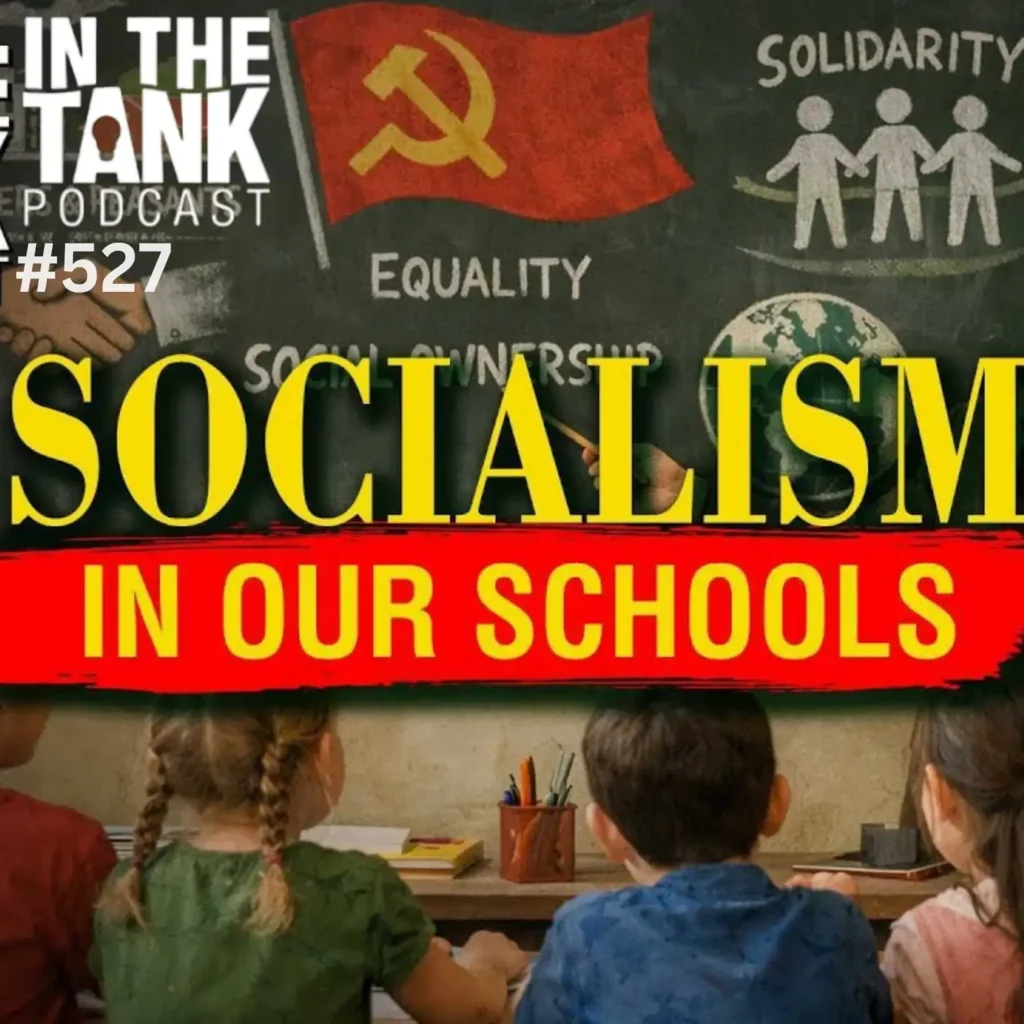Legislation moving its way through the Arizona Legislature would expand the Empowerment Scholarship Accounts (ESA) program—the state’s education savings account program for disabled students, students in foster care, students of active-duty military personnel, and children living on Indian reservations—to make it a universal program open to all 1.1 million K-12 students in Arizona.
The bill also allows families to use their education savings accounts to pay for transportation services, computer hardware, and “technological devices primarily used for educational purposes”, such as calculators, telescopes, microscopes, and printers.
Copious empirical research on school choice programs makes clear these programs offer families improved access to high-quality schools that meet their children’s unique needs and circumstances, and that these programs improve academic performance and attainment and deliver a quality education at lower cost than traditional public schools.
To cite just a few examples, a recent study from EdChoice looked at the five Arizona education choice programs—Empowerment Scholarship Accounts, the Original Individual Income Tax Credit Scholarship Program, the Low-Income Corporate Income Tax Credit Scholarship Program, Lexie’s Law for Disabled and Displaced Students Tax Credit Scholarship Program, and the “Switcher” Individual Income Tax Credit Scholarship Program—and found these programs have saved Arizona taxpayers between $1.2-$3.2 billion through Fiscal Year 2018. This works out to a savings of between $1,861 and $4,808 per each student participating in these programs.
A 2019 report from the Goldwater Institute found students making use of the Empowerment Scholarship Account Program come from “higher poverty” school districts at a nearly identical rate as the state’s traditional neighborhood public schools. Further, the report notes, “the highest concentrations of ESA usage actually occur in the most severely economically disadvantaged communities in Arizona. Among the 10 districts with the highest share of ESA students (as a percentage of each district’s overall student enrollment), eight have higher than average child poverty rates. In fact, the three districts with the highest concentrations of ESA students in the entire state have child poverty rates more than double the state average.”
The report also details the benefits of ESAs for Native Americans, who make use of the program at the highest rate of any demographic. “In contrast to the public school spending amounts that reach up to $16,000 per pupil,” the report states, “the average (non-kindergarten, non-special needs) ESA award for students from Native American reservations totaled just $6,219 in FY 2019, meaning they cost up to $10,000 less per student per year than the surrounding public school systems. Yet even at this substantially lower cost, ESAs provide enough funding to cover up to 100% of tuition costs at nearby private schools, providing students opportunity where often none existed before.”
Additionally, education choice programs benefit public school students and taxpayers by increasing competition, decreasing segregation, and improving civic values and practices. Research also shows students at private schools are less likely than their public school peers to experience problems such as alcohol abuse, bullying, drug use, fighting, gang activity, racial tension, theft, vandalism, and weapon-based threats. There is also a strong causal link suggesting private school choice programs improve the mental health of participating students.
Further, Arizona’s public schools are habitually failing the state’s children. In 2019, only 37 percent of public school fourth-graders and 31 percent of eighth-graders tested “proficient” to grade level in mathematics on the National Assessment of Educational Progress (NAEP) examination, colloquially known as the “Nation’s Report Card.” Just 31 percent of fourth-graders and 28 percent of eighth-graders tested “proficient” in reading. Essentially, and embarrassingly, the state’s public schools are failing to educate roughly seven out of ten Arizona children to grade-level proficiency in reading and math.
It is likely the combination of these dismal results and the political brinksmanship perpetrated by teachers unions throughout COVID-19—in direct conflict with students’ best interests—that have made education choice programs more popular with parents than ever. Polling by EdChoice released in September 2021 found 78 percent support of the general public and 84 percent of parents with a child currently in school support ESAs. These findings are mirrored in the American Federation for Children’s eighth-annual National School Choice Poll, released in March 2022, which found 77 percent support for ESA programs.
The goal of public education in Arizona today and in the years to come should be to allow all parents to choose which schools their children attend, require every school to compete for every student who walks through its doors, and make sure every child has the opportunity to attend a quality school. Expanding the ESA program into a universal program meets that goal. There has not been a time when providing these opportunities has been more urgent and more needed than right now.
The following documents provide more information about education choice programs.
Education Savings Account Serving Low-Income Communities: The Impact of ESAs in Arizona, Part II
https://goldwaterinstitute.org/wp-content/uploads/2019/11/Education-Savings-Accounts-Serving-Low-Income-Communities_web-1.pdf
This report by the Goldwater Institute and American Federation for Children captures the extraordinary impact of the Empowerment Scholarship Account (ESA) program among Arizona families most in need. The report shows that ESAs put private education within financial reach of even the most economically disadvantaged and turns upside down prior claims that ESAs disproportionately benefit wealthy communities.
The Public School Benefits of Education Savings Accounts: The Impact of ESAs in Arizona
https://goldwaterinstitute.org/wp-content/uploads/2019/08/Public-School-Benefits-of-ESAs_web.pdf
This report from the Goldwater Institute illustrates how the state’s education savings account (ESA) program, Empowerment Scholarship Accounts, are good news for Arizona students and their families, Arizona taxpayers, and Arizona public schools. The report finds ESAs provide a customized education to high-need students, giving them more opportunity to succeed, save taxpayers thousands of dollars per enrolled child, and financially benefit K-12 public schools.
Families’ Experiences on the New Frontier of Educational Choice: Findings from a Survey of K–12 Parents in Arizona
https://www.edchoice.org/wp-content/uploads/2019/05/2019-4-Arizona-Parent-Survey-by-Andrew-Catt-and-Albert-Chang.pdf
Arizona has one of the most robust, diverse school choice environments in the nation, featuring charter schools, a tax-credit scholarship (TCS) program and education savings accounts (ESAs). This EdChoice report surveys approximately 3,500 parents across all educational sectors to learn more about their school climate, satisfaction, levels of parental involvement, schooling preferences, and trusted sources for educational decisions.
Exploring Arizona’s Private Education Sector
https://www.edchoice.org/wp-content/uploads/2016/12/Exploring-Arizonas-Private-Education-Sector-by-Andrew-D-Catt.pdf
This EdChoice report surveys Arizona private school leaders about the state’s educational choice programs, especially its Empowerment Scholarship Accounts, as well as their schools’ enrollment capacity, tuition rates, student demographics, and more. This report brings together those results along with U.S. Department of Education data to paint a detailed picture of Arizona’s private education sector.
The Education Debit Card II: What Arizona Parents Purchase with Education Savings Accounts
http://www.edchoice.org/wp-content/uploads/2016/02/2016-2-The-Education-Debit-Card-II-WEB-1.pdf
This EdChoice follow-up study examines more data from Arizona’s Empowerment Scholarship Account program. The program allows families to spend their education dollars on a variety of options, including private tutoring, learning therapies, and more. The report reveals ESA families’ expenditures now and how spending trends have changed since their last report.
Fiscal Effects of School Choice
https://www.edchoice.org/wp-content/uploads/2021/11/Fiscal-Effects-of-School-Choice-Condensed.pdf
This EdChoice analysis of 40 private educational choice programs in 19 states plus D.C. summarizes the facts and evidence on the fiscal effects of educational choice programs across the United States and finds they have provided up to $28.3 billion in net fiscal savings to state and local taxpayers through Fiscal Year 2018. The programs in the analysis include three education savings accounts programs (ESAs), 19 school voucher programs, and 18 tax-credit scholarship programs.
The 123s of School Choice (2020 Edition)
https://www.edchoice.org/wp-content/uploads/2020/04/123s-of-School-Choice-2020-4.pdf
This report from EdChoice is an in-depth review of the available research on private school choice programs in America. Areas of study include: private school choice program participant test scores, program participant attainment, parent satisfaction, public school students’ test scores, civic values and practices, racial/ethnic integration and fiscal effects.
A Win-Win Solution: The Empirical Evidence on School Choice (Fourth Edition)
http://www.edchoice.org/wp-content/uploads/2016/05/A-Win-Win-Solution-The-Empirical-Evidence-on-School-Choice.pdf
This paper by EdChoice details how a vast body of research shows educational choice programs improve academic outcomes for students and schools, saves taxpayers money, reduces segregation in schools, and improves students’ civic values. This edition brings together a total of 100 empirical studies examining these essential questions in one comprehensive report.
The Public Benefit of Private Schooling: Test Scores Rise When There Is More of It
https://object.cato.org/sites/cato.org/files/pubs/pdf/pa830.pdf
This Policy Analysis from the Cato Institute examines the effect increased access to private schooling has had on international student test scores in 52 countries. The Cato researchers found that a 1 percentage point increase in the share of private school enrollment would lead to moderate increases in students’ math, reading, and science achievement.
The Effects of School Choice on Mental Health
https://papers.ssrn.com/sol3/papers.cfm?abstract_id=3272550
This study from Corey DeAngelis at the Cato Institute and Angela K. Dills of Western Carolina University empirically examines the relationship between school choice and mental health. It finds that states adopting broad-based voucher programs and charter schools witness declines in adolescent suicides and suggests that private schooling reduces the number of times individuals are seen for mental health issues.
Child Safety Accounts: Protecting Our Children through Parental Freedom
https://heartland.org/wp-content/uploads/documents/CSAccountsPB.pdf
In this Heartland Policy Brief, Vicki Alger, senior fellow at the Independent Women’s Forum and research fellow at the Independent Institute, and Heartland Policy Analyst Tim Benson detail the prevalence of bullying, harassment, and assault taking place in America’s public schools and the difficulties for parents in having their child moved from a school that is unsafe for them. Alger and Benson propose a Child Safety Account program, which would allow parents to immediately have their child moved to a safe school – private, parochial, or public – as soon as parents feel the public school their child is currently attending is too dangerous to their child’s physical or emotional health.
Nothing in this Research & Commentary is intended to influence the passage of legislation, and it does not necessarily represent the views of The Heartland Institute. For further information on this subject, visit School Reform News, The Heartland Institute’s website, and PolicyBot, Heartland’s free online research database.
The Heartland Institute can send an expert to your state to testify or brief your caucus; host an event in your state; or send you further information on a topic. Please don’t hesitate to contact us if we can be of assistance! If you have any questions or comments, contact Heartland’s government relations department, at [email protected] or 312/377-4000.





